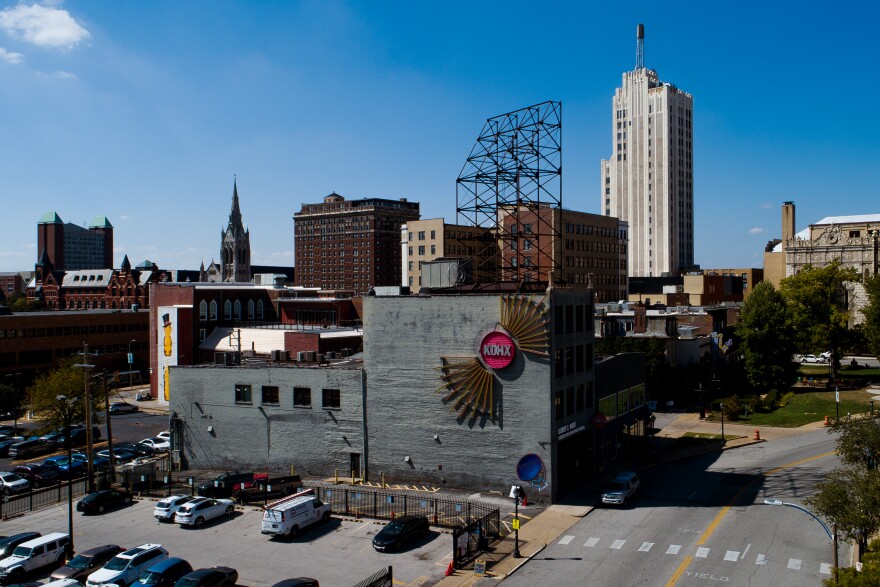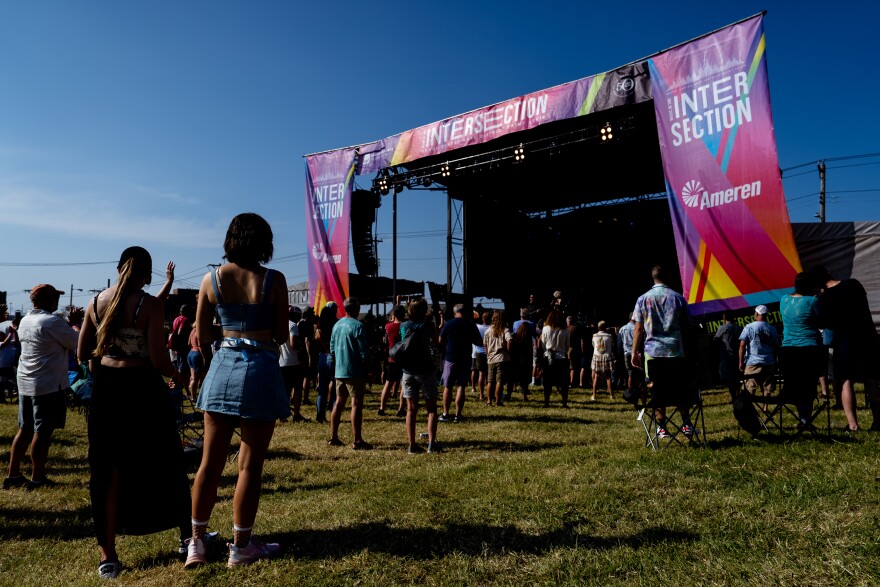If 2022 was the year St. Louisans started to return in force to the venues and institutions they love, then 2023 was the year arts leaders and venue owners fully embraced fans’ desires, opening new places and festivals for music.
Concerts and other shows attracted fans of all genres, and leaders honored hometown heroes.
But the St. Louis arts community experienced loss with the deaths of music legend Tina Turner, Grace Bumbry, Richard Gaddes and David Dee. And beloved institutions faced a slew of challenges.
As the year wraps up and arts leaders prepare for 2024, a few storylines and topics from the past year point to defining messages for the arts.
1. New venues and festivals bring out crowds

Arts groups are still working out their ongoing response to the coronavirus pandemic, but we saw perhaps a surprising contradiction this year: Organizations of all types are having trouble luring their audiences back to live performances.
Yet music venues of all sizes are continuing to spring up and crowd the market.
After buying the building four years ago, the new owners of the South Broadway spot once known as Beale on Broadway opened their doors in June with a fresh renovation and a rebrand. Billy’s on Broadway still features lots of live music, but it’s more like a nice sports bar than the crooked-cornered blues club that sat there before.
City Winery, a national chain of midsize venues, opened up at the rapidly filling Foundry development in Midtown. Its calendar includes a mix of local talent, special events and national artists. Robert Glasper, Jonathan Coulton and Marc Cohn are on the upcoming calendar.
And the Evolution Festival, the biggest stage in St. Louis — both literally and figuratively — brought a large-scale music festival to Forest Park for the first time since the last LouFest in 2017.
“I wanted three things: make the artists happy, make the city proud, and make the fans want to come back for next year,” co-executive producer Steve Schankman said following the festival. “We did what we wanted to do, which was give something to St. Louis.”
About 25,000 people attended the two-day festival, which featured performers like the Black Keys, Brittany Howard, Ice Cube and Brandi Carlile — leading organizers to schedule its return in 2024.
Other festivals also saw large audiences return, including Music at the Intersection, which drew about 3,500 more people to Grand Center than last year, cementing itself as a St. Louis institution that will probably remain for years to come.
“St. Louis giants were well represented, playing next to living legends and the best of A-list contemporary artists across a variety of genres,” Kranzberg Arts Foundation Executive Director Chris Hansen said following the festival. “A real celebration of community — and not a bad note played all weekend.”
2.Hip-hop 50 celebrations are front and center

Among the highlights of the year were the live performances and other events that took a look back at 50 years of hip-hop.
Music at the Intersection organizers honored East St. Louis radio veterans Edie Bee Anderson and Gentleman Jim Gates with the festival’s Legend Award for playing Sugarhill Gang's "Rapper’s Delight” on WESL in East St. Louis in 1979.
“I played it in my office and I gave it to Edie, and she didn't want to play it, but I told her she had to,” Gates said in February. “She was getting off the air in about two hours, and this record was 14 minutes, almost 15 minutes long. First time she heard a scratch, she said, 'Oh, no.' I said, 'You’re going to have to play that twice an hour.'”
The historic moment marked the the first time a hip-hop record was played on the radio, launching the genre into the mainstream to become a cultural force that has influenced generations of artists in music, dance and fashion.
The St. Louis Art Museum launched "The Culture: Hip Hop and Contemporary Art in the 21st Century," an exhibit highlighting hip-hop’s multidisciplinary cultural impact. Damon Davis, Aaron Fowler and Kahlil Robert Irving were among the artists with work included. Art museum leaders gathered a team of about 20 people to review and ensemble the exhibition.
“The curatorial team started from a deep respect and understanding of how hip-hop grew from local, grassroots, community engagement,” museum Director Min Jung Kim told a group of artists and reporters this fall. “Our aim was to speak to as many people as possible, and truly to listen.”

Sophie’s Artist Lounge, Cinema St. Louis, Paint Louis and the St. Louis County Library held events commemorating the history of hip-hop as well. For DJs who shaped the region’s sound, the year wasn’t just a celebration of the genre’s history but marking where it can go next.
“I don't know where it's going to end up,” DJ G. Wiz, who helped curate the Music at the Intersection hip-hop tribute, said in September. “I do know that it may end up back where it started, underground.”
3. KDHX issues leads to uncertain future

Leaders of community radio station KDHX let go about a dozen DJs this fall, several months after many signed a letter of no confidence in station Executive Director Kelly Wells.
Other station volunteers followed suit, leaving the station’s future in jeopardy. As new DJs continue to take to the air, absent are many longtime voices who have shaped the station's sound for decades.
“They’re experts in the music that they play,” Ital-K, one of the departed DJs, said of longtime DJs in an interview this fall. “They know the St. Louis history. They’ve got their audience. They’re part of people’s families.”
Former volunteers have filed a lawsuit against KDHX leaders, seeking to remove two board members and add three new ones, including Darian Wigfall, a former KDHX DJ.
“If there's change in the leadership or not, I think that we can all agree that the community is not happy with what's going on with the organization,” Wigfall said in November. “So at the very least we need to open up and listen to them, and not shut them out continuously and consistently.”







